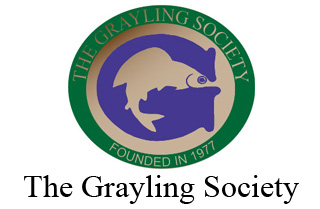Good Conduct
We expect you to engage in good practice wherever you fish. Educating by example!
Be courteous, respectful and considerate to tarjetas de credito facil de obtener fellow anglers and nature around you.
Never leave nylon, hooks or other litter on the river bank. Discarded hooks and nylon are dangerous for wildlife.
Wading
Be careful removing the bottom of the river, for not only can redds bedisturbed, but it can have adverse impact on fry and other aquatic life. For your own safety you should wear waders suitable to the conditions prevailing, use common sense over where you wade, and when deep wading employ a wading staff and a buoyancy aid, especially in unfamiliar waters.
Hooks
Use barbless hooks or hooks which have had the barb pinched down. Experience has shown that providing a fish is played correctly with a tight line, few fish are lost as a direct result of using barbless hooks.
Playing the fish
It is important to bring the fish to hand as soon as possible within the limits of your terminal tackle. Play the fish quickly, try to avoid the possibility “of breaking off” and leaving a hook in the fish. Do not overplay the fish for your own amusement.
Fish Handling
When handling any fish which is to be returned to the water it is essential to consider its well being. Wet your hands before touching any fish. Dry hands remove the surface slime from the fish which is there to protect him against waterborne parasites and diseases. Try not to handle the fish at all by leaning down and unhooking the fish in the water using forceps, angler’s pliers, nor other tools like ‘ketchum release’.
Avoid the temptation to hold the fish up long for admiration, it my boost your ego but could harm the fish.
Unhooking underwater is the preferred method.
If a fish has swallowed a hook which cannot be easily removed, cut of the spare nylon and leave the hook. This will ultimately be less stressful than probing inside the fish with forceps or a disgorger because rusting and digestive fluids will eventually break down the hook.
Returning Fish
Landed fish are tired, especially after a prolonged fight. A large fish will recover less quickly than a smaller one. When returning any fish, hold it carefully in the water facing upstream and keep holding until it has recovered and is capable of swimming away, perfectly upright, under its own power. Do not hold it with your fingers over the gills- it will drown! Do not move the fish backwards and forwards in the water, it will not speed its recovery, in fact, this action can reduce its chances of recovery because silt or other foreign bodies may enter the gills.
Use of a Net
The net should be fitted with a knotless mesh. Whenever a landing net is used it should be submerged and the fish drawn over it before lifting it gently up and out of the water. Unhooking should then be carried out with wet hands and the fish released as quick as possible. Do not put fish into keepnets as they suffer badly from stress in this situation.
Respect
Fish were not put in this world for our pleasure. However, we do gain pleasure from catching them. They are wild creatures and when angling for them we are engaged in a legitimate pursuit. Let us all treat the pursuit of the fish with the respect this age old tradition deserves.
Environmental Considerations
Anglers are the watch-dogs of the river and its environment Please report any pollution, or other threat to fish, to a responsible person, agency, e.g. club or environmental agency.
Safety
Look behind before casting. Wear eye and head protection, particularly in windy conditions. Remember that graphite (carbon) rods conduct electricity, so take extra care when fishing near overhead power lines, electric fences and in thunderstorms, when it is advisable to stop fishing altogether.
The Most Important
Whenever or wherever you are fishing… Enjoy yourself!
… Inspired and based on the ‘The Grayling Angling Code’ from the Grayling Society.


